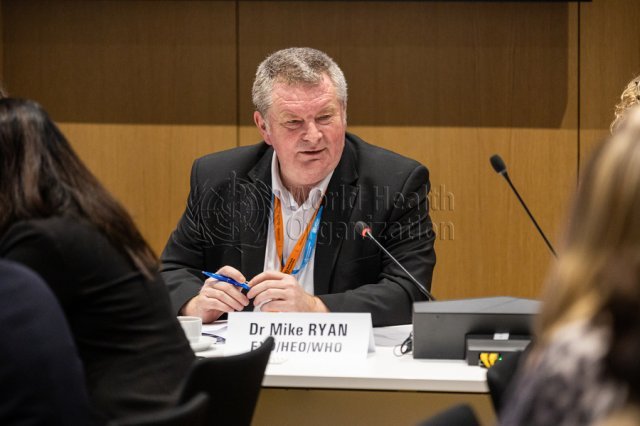“To tally and report the number of confirmed cases every day is costly and labor intensive. We need to find a way to monitor the outbreak of the novel coronavirus infection (COVID-19) in a comprehensive and cost-effective way.”
World Health Organization (WHO) emergency response team leader Michael Ryan (58) said this in an interview with Korean reporters in Geneva, Switzerland on the 29th of last month. Team leader Ryan is a doctor majoring in epidemiology and a public health expert. He said the emergency response team is a department within the WHO in charge of the international COVID-19 pandemic response system.
Currently, the Korean quarantine authorities are counting and announcing the number of corona19 confirmed cases that occurred the day before every morning. The Korea Centers for Disease Control and Prevention announced on the 29th of last month that it would switch the frequency of announcing the number of confirmed cases to once a week at the beginning of next month and stop counting confirmed cases from July. Team leader Ryan said, “We believe that integrating the COVID-19 surveillance system with other viruses such as influenza (flu) and respiratory syncytial virus (RSV) is a sustainable method.”
Team leader Ryan also emphasized that it is time to consider switching the quarantine obligation of confirmed patients to ‘recommendation’. Instead, he emphasized that a culture of voluntary infectious disease prevention should be established, such as staying at home for the safety of yourself and those around you if you have symptoms. He asked back, “If I have a fever and cough, but my COVID-19 test result is negative, should I go to work and go about my daily life normally?” The purpose is that even if you are infected with another respiratory virus, not Corona 19, you should voluntarily practice ‘staying at home’ if there is a concern about transmission.
 Mike Ryan, WHO Emergency Response Team Leader. Provided by WHO
Mike Ryan, WHO Emergency Response Team Leader. Provided by WHOThe World Health Organization (WHO) continues to declare COVID-19 a public health emergency of international concern (PHEIC). The WHO plans to hold an International Health Emergency Committee meeting between the end of this month and the beginning of next month to discuss whether to lift PHEIC. The South Korean quarantine authorities’ decision to ease the disease control measures at the beginning of next month is based on the observation that the WHO will lift the state of emergency at that time.
However, team leader Ryan avoided an immediate answer to the question asking whether he would lift the PHEIC declaration this time. He said, “I hope to have a ‘beautiful summer’, but I can’t give you an answer yet (whether or not PHEIC will be released). Also, even if PHEIC is lifted, the coronavirus will not disappear immediately.”
Meanwhile, team leader Ryan emphasized that the international community should prepare in advance for the ‘next pandemic’ after Corona 19. He compared the pandemic to a typhoon and the pandemic response system to a house, explaining, “Even if the same typhoon hits, if you live in a sturdy house, you won’t worry. It is said that the experience of Corona 19 should be used as a lesson to supplement the weaknesses of the virus surveillance system, and efforts should be made to ensure that vaccines and treatments are distributed fairly around the world.
Geneva =
Source: Donga
Mark Jones is a world traveler and journalist for News Rebeat. With a curious mind and a love of adventure, Mark brings a unique perspective to the latest global events and provides in-depth and thought-provoking coverage of the world at large.